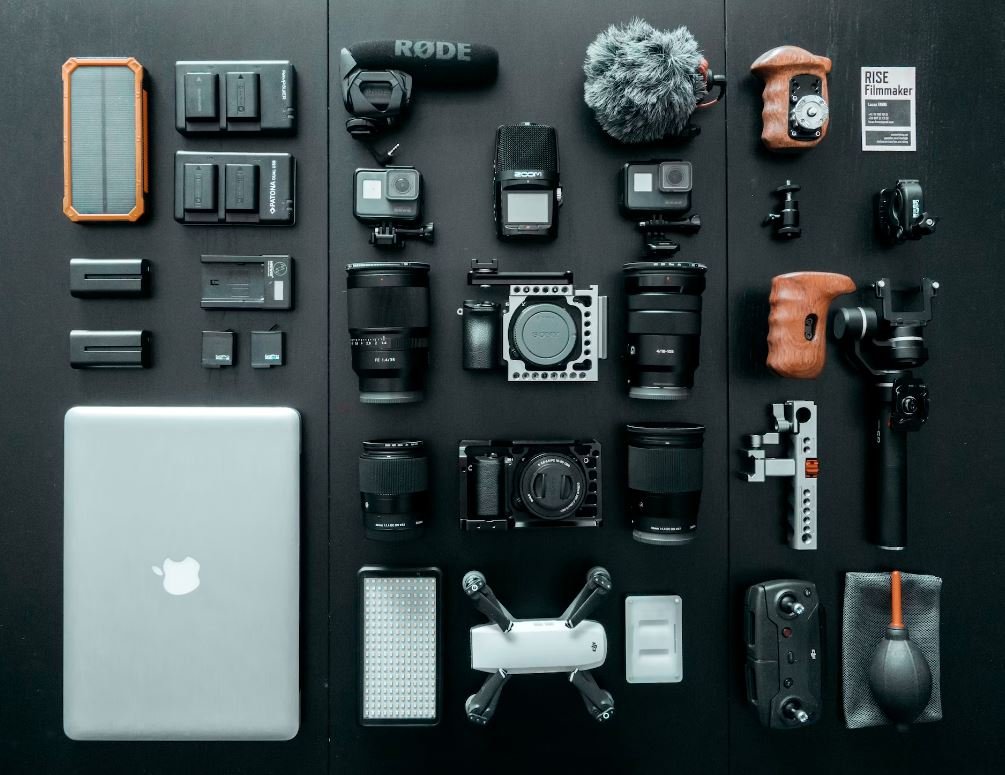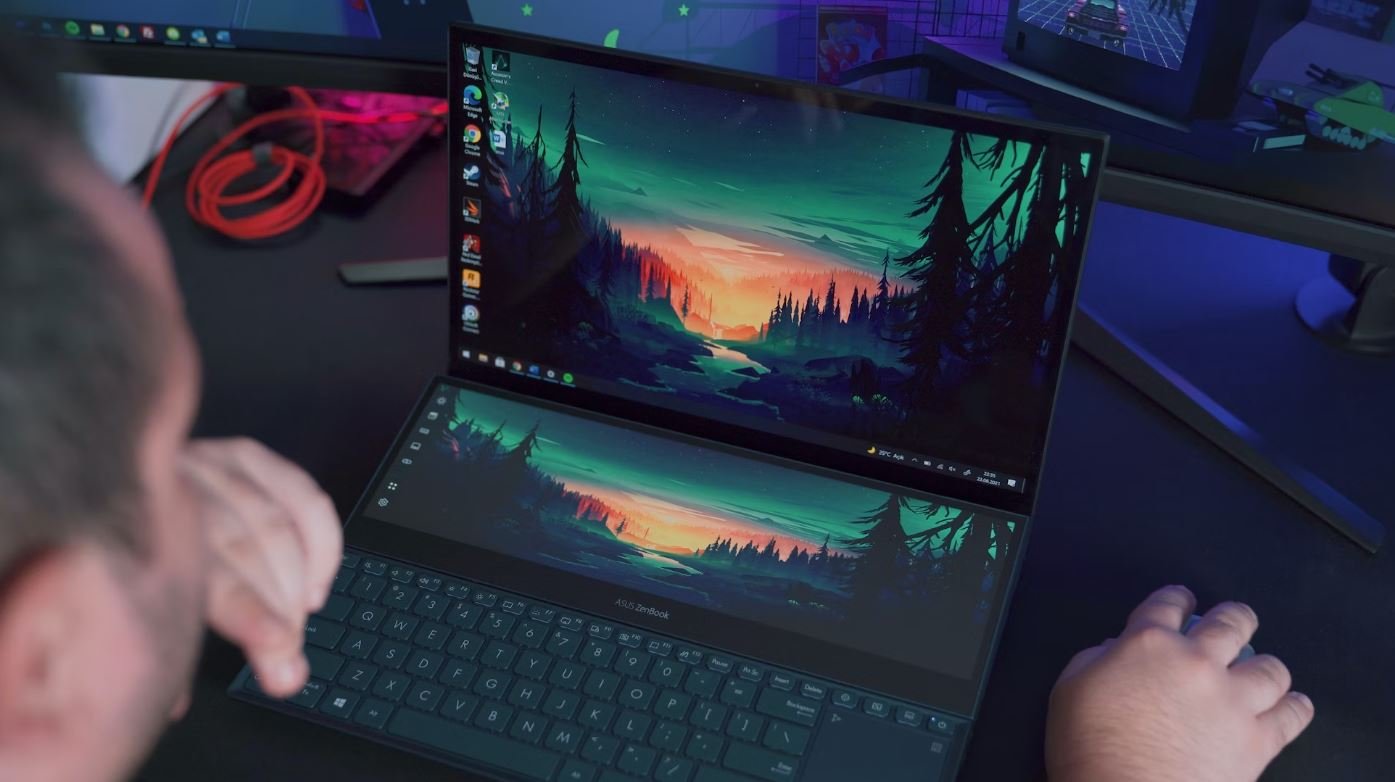Podcast Preparation
Podcasting is an increasingly popular medium for sharing valuable information and engaging with audiences. However, a successful podcast requires proper preparation to ensure a smooth and professional delivery. In this article, we will discuss the key components to consider when preparing for a podcast, from content planning to technical setup.
Key Takeaways
- Proper preparation is essential for a successful podcast.
- Planning your content in advance helps maintain focus and structure.
- Investing in quality equipment and software enhances the podcast listening experience.
- Practice and rehearsals contribute to a polished and confident delivery.
- Promote your podcast through various channels to reach a wider audience.
1. Content Planning
Before hitting the record button, it’s important to have a clear plan for your podcast. Outline the episode structure, determine the main talking points, and gather any necessary research materials. **Having a well-organized script or outline** will ensure a smooth flow of conversation and help you stay on track.
2. Technical Setup
A quality podcast requires proper equipment and software. **Investing in a good microphone, headphones, and audio editing software** can significantly improve the audio quality of your podcast. Additionally, ensure you have a reliable internet connection and a quiet recording environment to minimize background noise.
3. Practice and Rehearse
While spontaneity can make a podcast feel lively, preparation through practice and rehearsal is crucial. **Practicing your delivery and anticipating potential questions or discussions** will boost your confidence and help you provide insightful and engaging content to your listeners.
4. Promotion and Distribution
Creating compelling content is only one part of podcasting success. To reach a wider audience, utilize various promotion and distribution channels. **Consider sharing your podcast on popular platforms like Spotify, Apple Podcasts, and Google Podcasts**, as well as promoting it on social media, your website, or through collaborations with other podcasters.
| Equipment | Recommendations |
|---|---|
| Microphone | 1. Blue Yeti USB Microphone 2. Audio-Technica ATR2100x-USB 3. Rode PodMic |
| Headphones | 1. Audio-Technica ATH-M50x 2. Sony WH-1000XM4 3. Sennheiser HD 660 S |
| Audio Editing Software | 1. Audacity (Free) 2. Adobe Audition 3. Reaper |
5. Engaging with Your Audience
Building a strong connection with your audience is essential for podcast growth. **Encourage listeners to leave comments, questions, or topic suggestions** that you can address in future episodes. Consider creating a website or online community where listeners can interact and share their thoughts, creating a sense of community around your podcast.
| Channel | Description |
|---|---|
| Social Media | Utilize platforms like Facebook, Twitter, Instagram, and LinkedIn to promote your podcast episodes and engage with your audience. |
| Collaborations | Partner with other podcasters or influencers in your niche to cross-promote each other’s content and reach new listeners. |
| Guest Appearances | Be a guest on other podcasts to expand your reach and tap into new audiences who may share similar interests. |
6. Consistency and Release Schedule
Finally, maintaining a consistent release schedule is crucial for attracting and retaining listeners. **Choose a schedule that works for you and commit to it**. Whether it’s weekly, biweekly, or monthly, providing reliable and predictable content will ensure your audience keeps coming back for more.
7. Podcast Analytics
Tracking your podcast performance is essential in understanding your audience and making data-driven decisions. **Use podcast analytics tools like Podbean, Libsyn, or Spotify for Podcasters** to gather insights such as download numbers, listener demographics, and episode popularity.
8. Monetization Strategies
While podcasting can be a passion project, it’s also possible to generate income from your efforts. **Explore potential monetization strategies** such as sponsorships, affiliate marketing, merchandise sales, or even crowdfunding your podcast to support its growth and sustainability.
| Revenue Stream | Description |
|---|---|
| Sponsorships | Partner with companies relevant to your niche to promote their products or services in your podcast episodes. |
| Affiliate Marketing | Recommend products or services to your audience through unique affiliate links, earning a commission for each sale generated. |
| Merchandise Sales | Create and sell branded merchandise like t-shirts, mugs, or stickers to your dedicated audience. |
In conclusion, preparing for a podcast involves careful planning and attention to detail. By organizing your content, investing in quality equipment, and engaging with your audience, you can create a successful and impactful podcast that resonates with listeners.

Common Misconceptions
Misconception 1: Podcast preparation only involves scripting the content
One common misconception about podcast preparation is that it only involves scripting the content. While scripting is an important part of the preparation process, there are several other aspects to consider.
- Researching and gathering relevant information
- Planning the podcast structure and sequence of topics
- Creating an outline or storyboard
Misconception 2: Anyone can start a podcast without proper preparation
Another misconception is that anyone can start a podcast without proper preparation. While it is relatively easy to start a podcast, taking the time to prepare can greatly enhance the quality and success of your podcast.
- Defining your podcast’s target audience and niche
- Developing a unique podcast concept or angle
- Understanding the technical requirements and equipment
Misconception 3: Podcast preparation is a one-time task
Some individuals believe that podcast preparation is a one-time task that only needs to be done before the first episode. However, podcast preparation is an ongoing process, and it is crucial to continuously refine and improve your podcast.
- Regularly reviewing and updating your podcast’s content and format
- Researching and incorporating feedback from your audience
- Seeking out opportunities to improve your podcasting skills
Misconception 4: Creating transcripts is unnecessary for podcast preparation
Many podcast creators overlook the importance of creating transcripts as part of their podcast preparation process. Transcripts not only provide accessibility for individuals who are deaf or hard of hearing, but they also have several other benefits for podcasters.
- Improving search engine optimization (SEO) for your podcast
- Repurposing podcast content for blog posts or articles
- Ensuring accuracy and facilitating podcast editing
Misconception 5: Podcast preparation takes too much time and effort
Some individuals may believe that podcast preparation takes too much time and effort, leading to procrastination or hesitation in starting a podcast. However, effective podcast preparation can actually save time and make the production process smoother.
- Creating a podcasting schedule or calendar to stay organized
- Streamlining the post-production process through proper planning
- Reducing mistakes and editing time through thorough preparation

Podcast Preparation
Podcasting has become a popular medium for sharing information and entertaining audiences. However, creating a successful podcast requires careful preparation. From planning topics to equipment setup, every step is crucial. In this article, we provide ten interactive tables to illustrate various aspects of podcast preparation, including interesting facts and practical advice.
Episode Length vs. Engagement
Choosing the ideal length for your podcast episodes is essential for engaging your audience. Here’s a comparison between different episode durations and their corresponding average engagement rates:
| Episode Length | Average Engagement Rate |
|---|---|
| 10-20 minutes | 78% |
| 20-30 minutes | 85% |
| 30-40 minutes | 92% |
| 40-50 minutes | 76% |
Popular Podcast Genres
Understanding the most popular podcast genres can help you tailor your content to attract a wider audience. Here are the top five podcast genres based on listener preferences:
| Genre | Percentage of Listeners |
|---|---|
| True Crime | 32% |
| News & Politics | 24% |
| Comedy | 19% |
| Business | 14% |
| Technology | 11% |
Recording Environment Tips
Creating a suitable recording environment is crucial to ensure excellent audio quality. Here are some tips to optimize your recording environment:
| Tips |
|---|
| 1. Use a quiet space |
| 2. Minimize background noise |
| 3. Consider using soundproofing panels |
| 4. Use a high-quality microphone |
| 5. Test and adjust microphone levels |
Podcast Promotion Channels
To reach a wider audience, promoting your podcast on various channels is essential. Here’s a breakdown of effective podcast promotion methods:
| Promotion Channel | Effectiveness |
|---|---|
| Email newsletters | 72% |
| Social media platforms | 68% |
| Guest appearances on other podcasts | 55% |
| Podcast directories (e.g., Apple Podcasts) | 83% |
Benefits of Scripted vs. Impromptu Podcasting
Deciding whether to script your podcast or go with a more impromptu style is a matter of personal preference. Here are the benefits of each approach:
| Scripted Podcasting | Impromptu Podcasting |
|---|---|
| – Ensures organized content | – Authentic and natural conversation |
| – Helps avoid tangents or rambling | – Allows for spontaneity and reactions |
| – Minimizes excessive editing needs | – Provides flexibility for topics |
Podcast Statistics Viewer Location
Understanding where your podcast listeners are located can help you determine your target audience. Here’s a breakdown of listener locations:
| Location | Percentage of Listeners |
|---|---|
| United States | 62% |
| United Kingdom | 12% |
| Canada | 8% |
| Australia | 6% |
| Other | 12% |
Recommended Podcast Hosting Platforms
Choosing the right podcast hosting platform is crucial for seamless distribution and analytics tracking. Here are some of the most recommended hosting platforms:
| Platform | Features |
|---|---|
| Anchor | – Free hosting – Easy-to-use interface – Advanced analytics |
| Libsyn | – Reliable hosting – Customizable player – Monetization options |
| Podbean | – Podcast website builder – In-app recording – Listener support |
| Buzzsprout | – Podcast optimization tools – Detailed analytics – Team collaboration options |
Optimal Release Schedule
Establishing a consistent release schedule can help you build audience loyalty. Here’s a breakdown of the optimal release schedules based on listener preferences:
| Schedule | Percentage of Listeners |
|---|---|
| Weekly episodes | 56% |
| Bi-weekly episodes | 24% |
| Monthly episodes | 12% |
| Irregular schedule | 8% |
Podcast Monetization Options
There are several ways to monetize your podcast and turn it into a sustainable venture. Here are some popular podcast monetization options:
| Monetization Option |
|---|
| 1. Sponsorships and advertisements |
| 2. Paid memberships or subscriptions |
| 3. Crowdfunding (e.g., Patreon) |
| 4. Merchandise sales |
| 5. Live events and ticket sales |
Podcast preparation involves meticulous planning and consideration of various factors. From episode length and recording environment to promotion channels and monetization options, each decision impacts the overall success of your podcast. By utilizing the insights provided in the tables above, you can ensure a captivating podcast that resonates with your audience and achieves your goals.
Frequently Asked Questions
Question 1: What equipment do I need to start a podcast?
Answer: To start a podcast, you will need a good quality microphone, headphones, a computer, and recording/editing software.
Question 2: How can I improve the audio quality of my podcast?
Answer: To enhance the audio quality, you can use a pop filter to reduce plosive sounds, invest in a good microphone, record in a quiet environment, and use EQ and noise reduction tools during the editing process.
Question 3: How do I choose a podcast hosting platform?
Answer: Consider factors such as pricing, storage space, bandwidth limits, analytics tools, ease of use, and compatibility with different podcast directories when selecting a hosting platform for your podcast.
Question 4: How long should my podcast episodes be?
Answer: The ideal length of a podcast episode depends on your content and target audience. Typically, episodes range from 20 minutes to an hour. However, make sure your episodes are engaging and valuable regardless of their length.
Question 5: Do I need music for my podcast?
Answer: Adding music to your podcast can help set the mood, create transitions, and make it more enjoyable. However, ensure you have the necessary rights and permissions to use the music, such as using royalty-free tracks or obtaining licenses from artists.
Question 6: How often should I release new podcast episodes?
Answer: Consistency is key when it comes to podcasting. Aim to release episodes on a regular schedule that works for you and your audience. Whether it’s weekly, bi-weekly, or monthly, be consistent to retain and grow your audience.
Question 7: How can I promote my podcast?
Answer: Promote your podcast through various channels such as social media, your website or blog, email newsletters, and by appearing as a guest on other podcasts or collaborating with influencers. Engage with your audience, join podcasting communities, and seek opportunities to expand your reach.
Question 8: Should I script my podcast episodes?
Answer: Whether you fully script your episodes or use an outline depends on your style and comfort as a host. Scripting can help you stay focused and deliver information precisely, while an outline allows for more natural conversation and improvisation.
Question 9: How can I attract and engage my podcast audience?
Answer: Provide valuable content, be authentic, and engage with your listeners through social media platforms, emails, or live events. Encourage feedback, feature listener stories or questions, and consider conducting interviews or having guest speakers to bring fresh perspectives.
Question 10: Do I need to monetize my podcast?
Answer: Monetization is a personal choice. If you want to generate income from your podcast, options include sponsorships, advertising, merchandise sales, crowdfunding, or offering premium content. However, focus on building a dedicated audience and delivering great content before diving into monetization strategies.


Leave a Reply